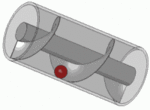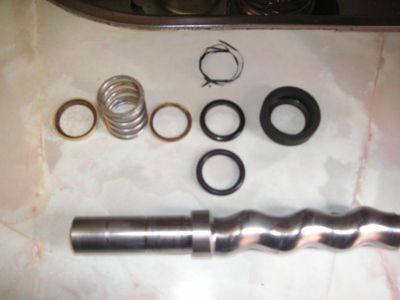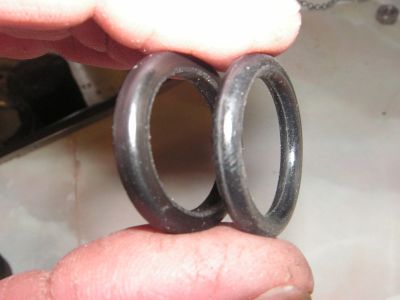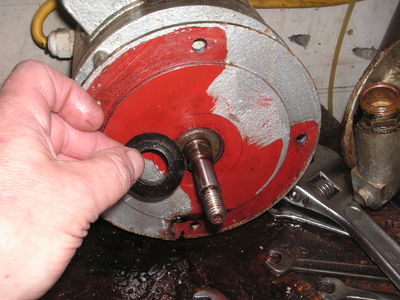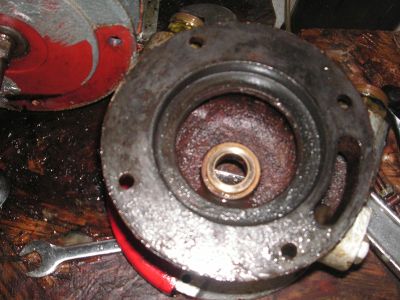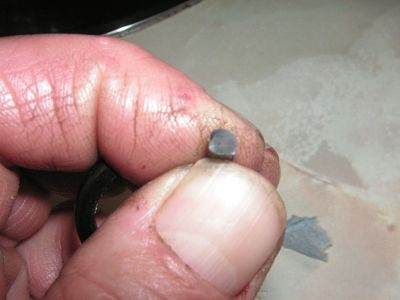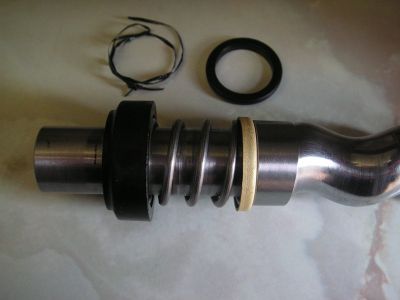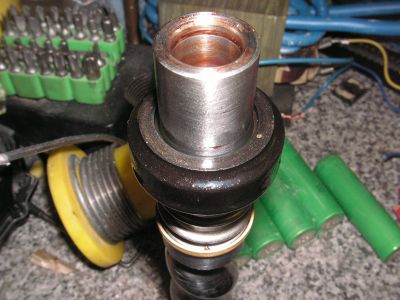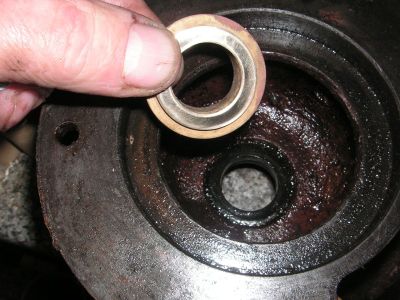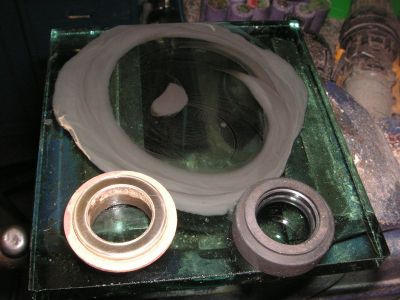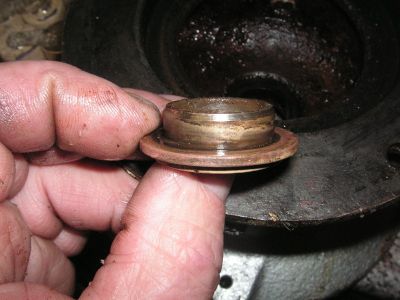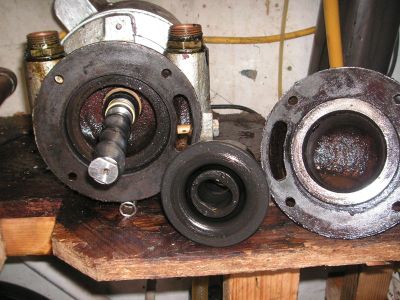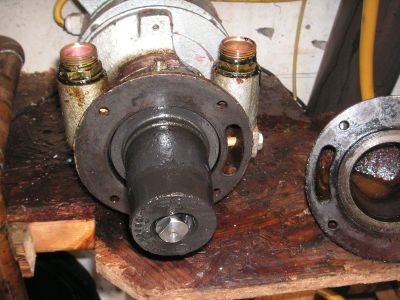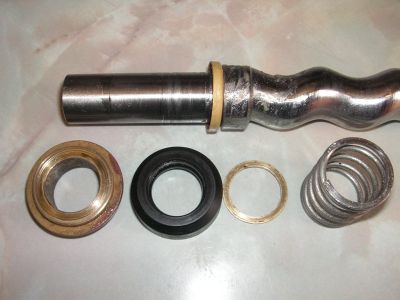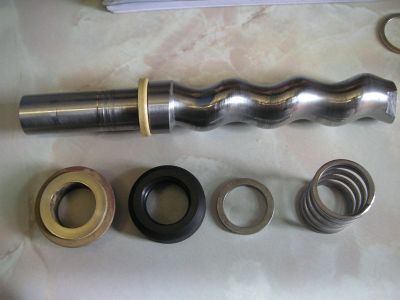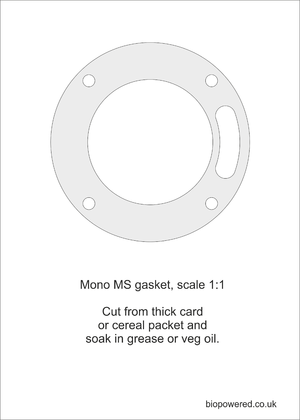Difference between revisions of "Pump - Mono MS"
| Line 84: | Line 84: | ||
During the last rebuild, a new gasket was made for the end cover. | During the last rebuild, a new gasket was made for the end cover. | ||
| − | A full size template was made for the gasket and can be down loaded in .pdf format. | + | A full size template was made for the gasket and can be down loaded in .pdf format below. Cut from a Corn Flakes packet or thick card and soak in vegetable oil or grease prior to assembly. |
| − | |||
[[File:Mono MS gasket.png|300px|left|link=http://www.biopowered.co.uk/w/images/0/06/Mono_MS_gasket.pdf|thumb| Click graphic for a full size pdf of the gasket. Allow time for the file to load, it's 1.3 Meg. Print without scaling.]] | [[File:Mono MS gasket.png|300px|left|link=http://www.biopowered.co.uk/w/images/0/06/Mono_MS_gasket.pdf|thumb| Click graphic for a full size pdf of the gasket. Allow time for the file to load, it's 1.3 Meg. Print without scaling.]] | ||
Revision as of 20:05, 10 June 2013
Mono have been manufacturing pumps since 1935. The design is what's known as a progressive cavity pump, being a single helix rotor operating within a twin helix stator. In very simplistic terms it can be thought of as being similar to an Archimedean spiral pump.
The MS pump has been in manufacture for at least 40 years and spare parts are still available. New these pumps retail at several hundred pounds but, although they don't appear frequently, they can be found second hand at reasonable prices on on-line auction sites.
The design is self priming and can be considered as a positive displacement pump. It is capable of pumping a large range of media including slurries and small entrained solids, although the latter will obviously induce premature ware. Different stator materials are available and the writer has had a viton stator pumping bio and vegetable oil in an MS pump for nearly five years at the time of writing with no noticeable adverse effects.
The pumps ability to pump viscous liquids makes it ideal for pumping WVO and semi-solid fats.
The Mono MS has the following specifications and performance:
- power(kw) ... 0.18
- Max. head ... 35.6m
- Flow at 1450rpm ... 12.5 L/min @ 0 bar - 5.3 L/min @ 3.5 bar.
- Max. suction head ... 8m (self priming)
- Max operating temperature ... TBA
- Inlet/Outlet connections … ¾” BSP, female
- Body material ... cast iron
- Rotor material ... stainless steel
- Stator material ... synthetic nitrile rubber (standard) but others available including viton.
- Weight ... 16kg (including motor)
Mono MS mechanical seal rebuild
The writers MS pump was found leaking so was dismantled. The problem was found to be a piece of landscaping fabric (used as a filter in the system). This seal differed from others in that there are no bellows. The static seal is made by an O ring located in the ceramic disc which seals it to the shaft.
- Mono MS mechanical seal rebuild
Damage was noted as score marks on the seal faces and the profile of the O ring (it was assumed that the item was originally a circular cross section) which had adopted more of a square section. Photo shows a comparison with a new O ring. A 20mm ID and 3.5mm section O ring was found to be a suitable replacement.
Both faces of the seal were gently sanded flat using 800 grit wet and dry paper, backed by plate glass and lubricated with a little water and washing up liquid. They were then lapped for a long period direct on the plate glass using T-Cut. The rotating half of the seal is made from a graphite type material and the static half from a soft brass making both pieces easy to reface.
After a few hours use, the seal started leaking again. The pump was dismantled and exactly the same problem found, tiny pieces of brass embedded in the graphite half of the seal.
- Mono MS second mechanical seal rebuild
Once cleaned up this was the state of the components. Note the scoring on the sealing face of the brass half. The brass washer had sharp edges and the face, where it abutted the spring was very rough. The ends of the spring were quite sharp. It therefore seemed reasonable to assume that the brass flakes were originating from the washer.
A new steel washer was made and all sharp edges removed. Similarly all sharp edges were removed from the spring. The mating faces of the seal were again lapped on a glass surface plate. The use of steel in place of brass for the washer wasn't considered a problem as the pump is only used for veg oil, bio and glycerine. The pump has now run for many hours without leaking.
During the last rebuild, a new gasket was made for the end cover.
A full size template was made for the gasket and can be down loaded in .pdf format below. Cut from a Corn Flakes packet or thick card and soak in vegetable oil or grease prior to assembly.
See also Mono MS instruction manual

